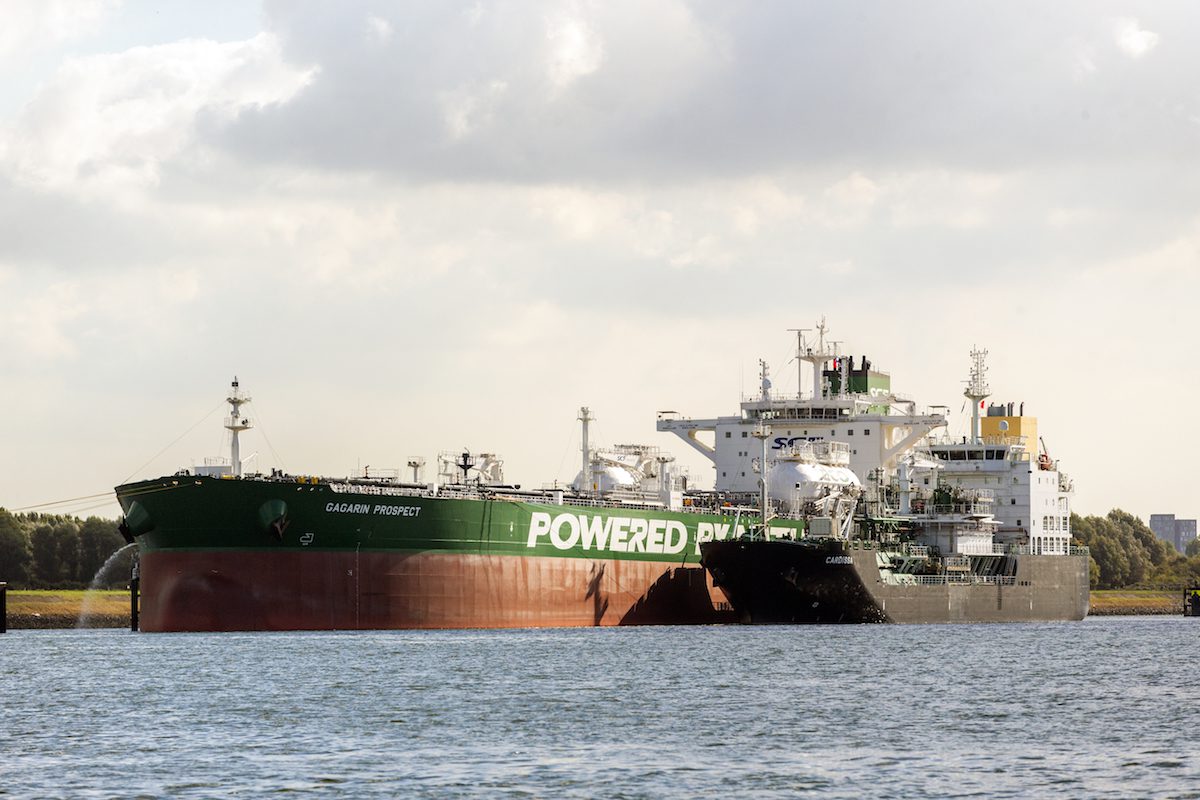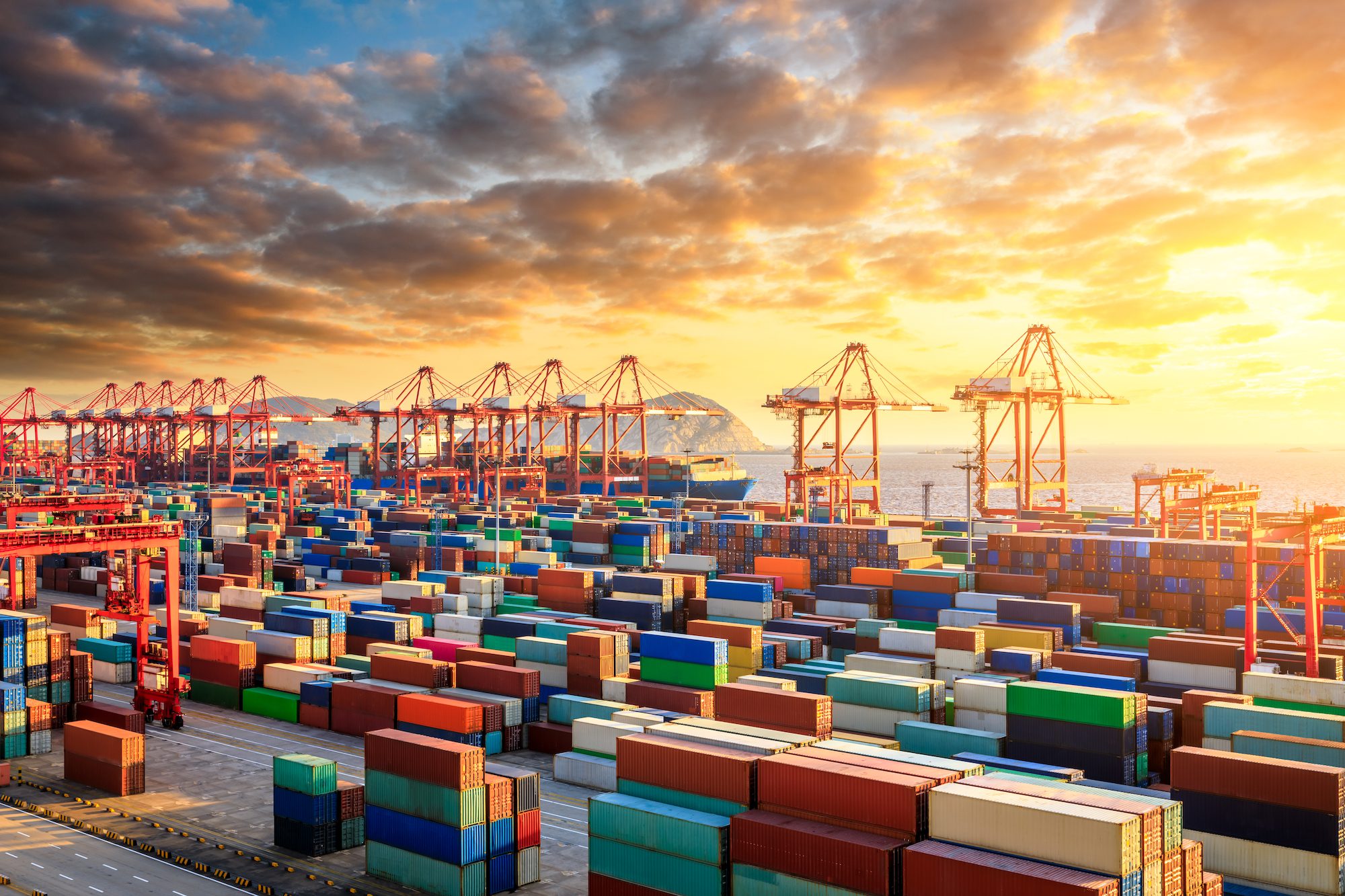LNG bunkering at the Port of Rotterdam.
By Jack Wittels and Akshat Rathi – (Bloomberg) –One of the shipping industry’s great hopes for improving its environmental performance — engines powered by liquefied natural gas — won’t offer the benefits that many vessel owners are hoping for.
That’s the conclusion of a nonprofit that analyzed the emissions from different types of vessels that use the fuel. Some types of LNG-powered ships leak so much methane — a contributor to global heating — that the environmental damage they cause over a 20-year period is far more acute than equivalent vessels run on conventional fuels.
Dirty fuels
The criticism is a brickbat for LNG, a fuel that’s long been viewed as means of helping industries to cut carbon emissions and hit climate goals. The two-decade timeline matters because the most ambitious global climate target is to reach net zero emissions by 2050 in order to keep a temperature increase below 1.5 degrees Celsius compared to pre-industrial times.
“Switching ships to LNG is worse than doing nothing,” said Kendra Ulrich, senior shipping campaigner at Stand.earth. “This should serve as an alarming wake-up call for the International Maritime Organization” the UN agency that oversees the industry’s emissions.
The study was carried out by the International Council on Clean Transportation and referenced in documents submitted to the IMO by the Clean Shipping Coalition, Pacific Environment, Greenpeace International and the WWF.
In the longer run, the LNG-powered ships in question can become less damaging relative to carriers running on conventional fuels because the leaked methane degrades over time.
Burning LNG produces about 25% less carbon dioxide per unit of energy than today’s typical oil-based marine fuels. It also emits very low quantities of sulfur and nitrogen oxides, both of which have negative implications for human health. The methane leak ultimately makes its greenhouse gas impact worse for the planet than today’s oil-based propellants in most cases, at least in the short term, the ICCT report says.
LNG mainly consists of methane, which traps 86 times more heat than the same amount of carbon dioxide over a 20-year period. While only a sliver of today’s merchant fleet runs on LNG, it’s becoming increasingly popular among newbuild vessels and often on the agenda when shippers discuss future fuels in the context of industry climate change targets.
While the report doesn’t apply to all LNG-powered ships, it shows that the most popular type of vessels running on LNG today have a particularly high level of methane slippage. The carriers in question are those that have low-pressure injection engines.
© 2019 Bloomberg L.P

 Join The Club
Join The Club











